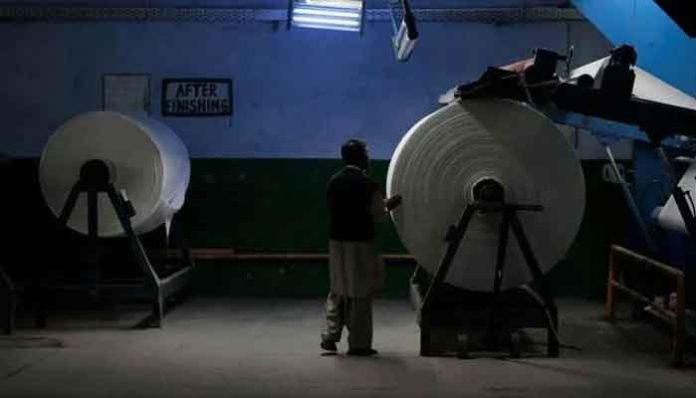LAHORE: Textiles owners on Thursday warned of a strike over non-clearance of imported cotton containers at Karachi Port amid the country’s struggle to boost fast-depleting foreign exchange reserves.
“The textile industry will be forced to protest if the government doesn’t clear the imported cotton coming to Karachi,” All Pakistan Textile Mills Association (APTMA) chairman Hamid Zaman said in a discussion programme of the Lahore Economic Journalist Association at APTMA house.
He added that the textile industry would fail to meet an export target of $25 billion in the current year on non-availability of raw materials, mainly the raw cotton. “This year, textile exports will be limited to $16 billion or $17 billion.”
The textile industry imports raw cotton and after value addition, exports it at four times to the imported value. Thus, the government should allow exporters to import 35 percent of the export value, but if things are not controlled, 7 million people associated with the industry to be unemployed in January, according to APTMA chief.
“The industry has left with 60 days’ raw materials only and if timely clearance of already arrived cotton will not start from the port, textiles will completely shut down. This will result in unemployment of 25 million people across the country,” he warned.
Zaman informed that almost 30 to 50 percent of the textile industry of Punjab, Khyber Pakhtunkhwa, and Sindh had already been completely or partially closed.
“The textile industry has so far ordered 1.7 million bales of cotton from US, out of which 0.531 million cotton bales dispatched from the US, and 100,000 bales of them have already arrived at Karachi port with a value of more than $300 million.”
APTMA chief urged the government to instruct commercial banks as well as the State Bank of Pakistan to ensure timely opening of letters of credit for the cotton importers to avoid any export crisis. Responding to questions, Zaman admitted that some exporters could not bring back their export amount back to Pakistan due to instability of exchange rate. He also asked the government to take action against those who were hoarding US dollar, vowing that the APTMA would support the cause.
Zaman further pointed out that demurrages and detention charges on imported goods had exceeded the value of the goods that foreign companies had to pay. “So far, Rs2 billion in demurrages and detention charges have been charged, which are increasing with time, and for a few days the traders and banks will be at odds with each other.”
APTMA senior vice chairman Kamran Arshad said a severe shortage of raw cotton was there in the local market as the country had produced only 4.6 million cotton bales. He mentioned that 15 million cotton bales were required to achieve $20 billion exports. Asad Shafi, vice chairman of the association, was of the view that the government exchequer would suffer revenue losses of billions of rupees by closing shops and markets earlier.














